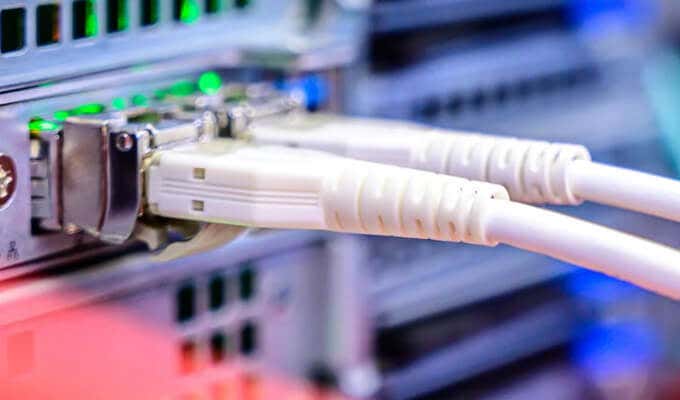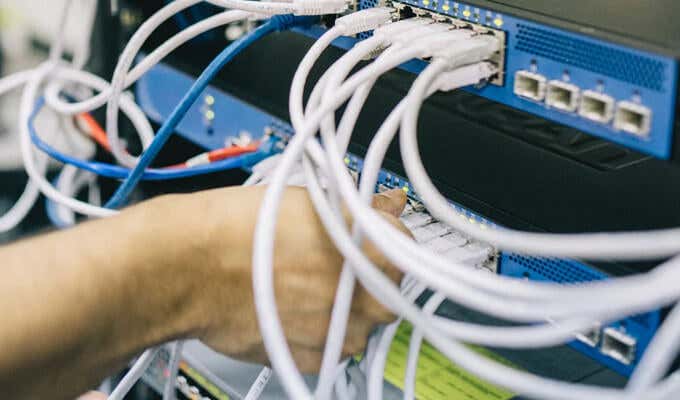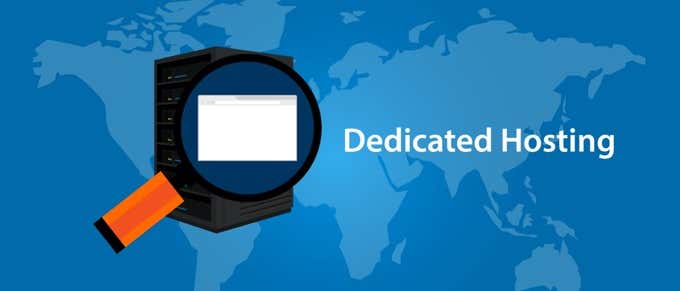We break down all the important considerations
Most people are under the assumption that when you sign for a hosting plan, you get your own IP address, but that’s not true. The truth is you need to sign up for a dedicated IP address for that. But what is a dedicated IP address?
Most hosting packages will give you an IP address that’s shared by a number of other customers. This means that the bandwidth for internet traffic is stretched across multiple websites.

In this article, we’ll take a deeper look at the difference between a dedicated IP and a shared hosting account, and explain whether it’s worth getting a dedicated IP or not.
What Is a Dedicated IP Address In Hosting?
Most typical hosting plans come at a low price because the hosting company can place multiple hosting accounts at the same IP address. This means that one server is essentially dedicated to multiple different customers.

A dedicated IP address is different and it means you’ll have your very own IP address, or server, dedicated to your one account. It costs more for a dedicated IP address because the hosting provider must reserve more server resources for just one customer, but it usually comes with a number of benefits.
What Are The Benefits of Using a Dedicated IP Address For Your Website?
For the average customer, running on a shared hosting plan is a great place to start, but there are some benefits to upgrading. Let’s start with the negative drawbacks of a shared plan.
When you’re on a shared plan, your IP address is shared with other customers. Your privacy and account details are safe and there’s no way to know who is sharing an IP address with you. But using a shared IP address does pose a risk to your website performance.
Firstly, because there could be multiple websites with incoming traffic hosted on a single server, bandwidth has to be managed. The peak maximum upload and download speeds are often restricted to very specific levels with these hosting plans so that the servers don’t become overloaded.

Unfortunately that means that if you hit a spike in traffic from a viral post or a well performing article on Google for example, traffic may be throttled. Users may have to wait longer for your website to load so that your site isn’t causing issues to other customers sharing your same IP address.
This can have a huge negative impact on your user retention. Page speed score is important. So upgrading to a dedicated IP address can stop this issue from ever happening.
Another negative drawback to using a shared hosting plan is that you may risk interference to your website performance as a result of other customer activity.
As we explained above, website traffic is throttled which means if things work like they should, you shouldn’t see any drastic performance issues if a customer sharing your IP address suddenly has a surge in traffic. But technology doesn’t always work as expected, and there’s no guaranteeing other customer activity may not cause issues.

One example could be if a customer sharing your IP address is targeted by a DDOS attack. Because you’re sharing a server with that customer, your website could have connectivity issues.
Another issue with shared plan hosting is that it’s not just the server network speeds that are shared. You also have to share other system resources, including storage. Because of this, shared IP hosting often limits a user’s storage size quite significantly, so you’ll have trouble expanding your website in the future if you keep uploading new content.
Of course, a dedicated IP address will resolve all of these problems. With a dedicated IP address, all system resources are dedicated only to you, including network speed, memory, and storage space.
Not all servers are built the same, so even if you plan to have your own dedicated IP Address, you must make sure the server has the right hardware and network requirements to manage your website and incoming traffic.

Dedicated IP hosting also has other benefits. Because you are the sole customer using that server, you are given greater control over how it operates because you won’t impact any other customer’s experience. You can control how your storage is distributed across your websites and manage network performance so you’re always ready to endure any sudden spikes in traffic.
Different hosting accounts offer different levels of support, so it may mean that owning a dedicated IP address requires more manual maintenance. But you’ll need to check with each server hosting provider to find out more details about that.
Dedicated IP vs Shared Hosting – Which Is Better?
It should be clear that a dedicated IP address has a number of benefits over shared hosting, but is it always the clear choice? Below we’ve taken a look at pricing and performance differences between dedicated IP hosting and shared server hosting on Bluehost, a popular provider.
The Stats of Dedicated IP Hosting
- Pricing from $119.99-$209.99
- 4 Cores @ 2.3GHz – 3.3GHz
- 500GB to 1TB mirrored storage
- 4GB-16GB RAM
- 5TB-15TB bandwidth
- 3-5 unique IP addresses

The Stats of Shared Hosting
- Pricing from $7.99-$23.99
- No dedicated IP address
- Storage, performance, and network throttled
Bluehost uses terms like “unlimited” or “unmetered” for its bandwidth and storage. What that means is that Bluehost monitors the average performance of their customers on shared plans and ensures that their servers can support the customers using it based on this data. And while your bandwidth and storage is technically unlimited, if you go outside of what they consider normal usage, Bluehost will contact you and ask you to tone it down a little bit.
For most people, the cost difference alone is why shared hosting is more than enough. Unless you’re running a popular website, dedicated hosting isn’t nessacary. But if you start to ramp up more traffic, upgrading to dedicated hosting can be a worthwhile investment.
We hope that we’ve been able to explain dedicated hosting to you and help you make a decision on whether to upgrade or not. If you have any more questions about it, make sure to leave a comment below.






